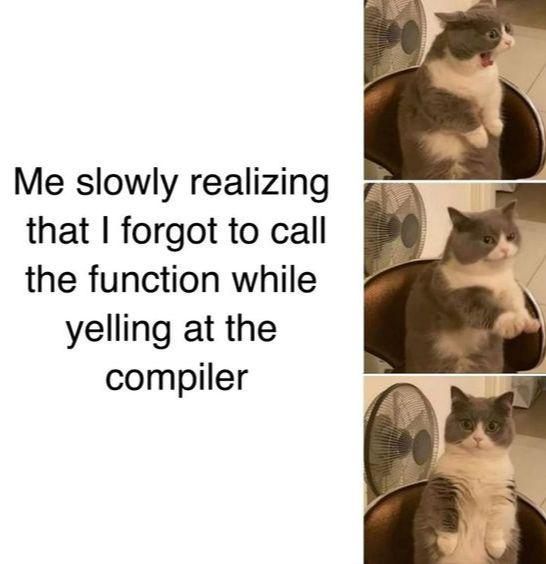Why Functions?
- Name a task; hide its steps.
- Reuse without copy–paste.
- Test in isolation.
- Enable teamwork via clear interfaces.
Value vs Reference
void inc(int n){ n++; }
int x=5; inc(x); // x ?void inc(int& n){ n++; }
int x=5; inc(x); // x ?
Recursion (Factorial)
int fact(int n){
if(n==0) return 1;
return n*fact(n-1);
}
Step through the call stack (n=4):
[empty]
Mini‑Quiz (1 minute)
Q1. What does pass‑by‑value do?
Boss Battle: Fibonacci
long long fib_rec(int n){ return n<2? n : fib_rec(n-1)+fib_rec(n-2); }
long long fib_it (int n){ long long a=0,b=1; while(n--){ long long t=a+b; a=b; b=t;} return a; }
(JS simulates timing to contrast exponential vs linear ideas.)
When you replace copy–paste with a function…

Abstraction: fewer moving parts to break.
Summary
- Functions provide names, contracts, and reuse.
- Prefer `const&` for large inputs; return results, not side‑effects.
- Overload prudently; keep interfaces minimal.
- Recursion needs a base case; iterative alternatives often cheaper.
- Lambdas enable on‑the‑spot behavior.
Back to Course Outline
Back to Course OutlinePrevious: Lecture 6 | Next: Lecture 8